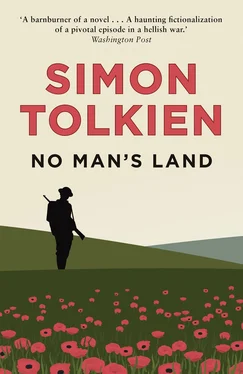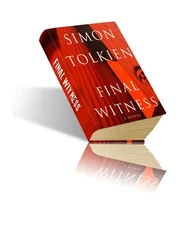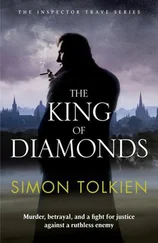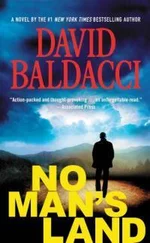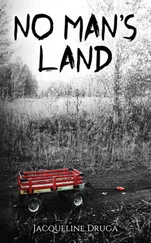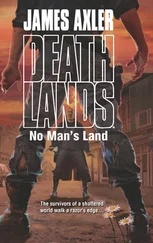‘And you work while I sit in school,’ said Adam. ‘But it’s not easy to be different, you know, Ernest. You don’t belong anywhere. People resent you.’
‘Like Rawdon?’
‘Yes.’
‘Well, you shouldn’t worry about him. He resents everyone. Play football like you did today and you’ll be all right,’ said Ernest, clapping Adam on the back.
But Adam did worry. Not just about Rawdon but about who he was, where he was going. He was an outsider, living in a town that he was striving to escape, learning Latin and Greek at the board school so he could move away and better himself, while everyone else in Scarsdale had their gaze fixed forever inwards, their lives dominated by the mine. It was like a magnet drawing men and boys down deeper and deeper into its black passages, while the women and girls slaved away in their mean box-like little houses to service their needs. Adam saw how Annie, Edgar’s wife, toiled ceaselessly, washing clothes, baking bread, cooking meals, maintaining everything in a constant state of readiness for her menfolk, who often returned home at different hours of the day or night as their shift times changed from week to week. Sometimes she didn’t go to bed at all but just dozed on a chair in front of the fire ready to jump up and wait on them when they came in. And perhaps the constant activity was a good thing, keeping her distracted from the gnawing fear that one day Edgar or Thomas or Ernest wouldn’t come home at all, falling victim instead to one of the terrible underground accidents that seemed to happen almost every week.
The mine was cruel and the mine was king. And yet Adam had never once been inside it. He knew that he was frightened of it – terrified even. It was the embodiment of his worst childhood nightmares when he’d dreamed over and over again of being stuck fast in a narrow space in the pitch-black darkness unable to move, buried alive without hope of rescue. And yet he hated the fear too. Adam was brave by nature and his secret shamed him, becoming a challenge that he had to overcome. If he gave into it he wouldn’t be able to hold up his head in front of the boys his age who worked down the mine every day. He needed to understand their experience; he needed to know what he was working so hard to try to get away from.
He waited a few days, screwing up his courage, and then asked his father to show him the mine. He had been anticipating opposition but instead Daniel seemed pleased by the request – once he had got over his initial surprise at being asked; he knew full well his son’s fear of going underground.
‘Come to the pithead tomorrow morning and I’ll show you round,’ he said. ‘There’s a lot to learn and it won’t hurt you to miss one day of school.’
At first Adam was alone as he walked down the street from Edgar’s house, but by the time he reached the station he had become part of a crowd of miners all heading the same way towards the valley bottom with their snap tins and drinking flasks dangling from their hands. The rising sun was shining on their backs and they seemed happy and carefree: laughing, smoking, jostling each other – a sea of cloth caps moving towards the headstocks whose wheels were running fast now, hauling the cages up and down the shafts. The men’s mood increased Adam’s sense of isolation – none of them could imagine the dread he was feeling in the pit of his stomach. He had to force himself to go on, placing one foot in front of the other.
Further down the road, they started to meet miners coming the other way, returning home from the night shift. They were black with coal, blinking bleary eyes in the sunlight as they shuffled wearily along. And now the road became a path, winding its way through a grey barren waste ground littered with the detritus of the mine – discarded feed sacks for the ponies, broken coal tubs and timber props, pieces of rusting machinery whose purpose Adam couldn’t determine. Railway lines snaked here and there with the main line running on towards the screens area where Ernest worked.
Adam could see him with a group of other boys and men, standing on either side of a wide belt of moving coal, their hands in a constant flurry of motion as they pulled out stones and rubbish and threw them aside, although not fast enough to satisfy a corpulent red-faced man in a low round-crowned black hat who was standing on a gantry above the screens, shouting at the workers below, berating them for being too slow or too careless with a stream of profanity that never seemed to end.
It looked like terrible work, Adam thought. As fast as they worked, the coal kept on coming, tipped down a series of chutes on to the sorting belts by tippler machines. On and on, hour after hour, until it was time to go home and catch a few hours’ sleep before beginning again. Adam wondered at his friend’s patience and good humour. If he were in Ernest’s shoes he thought he’d go mad within a week or at least throw a lump of coal at the slave-driving tyrant up above; anything to make him shut up if only for a moment.
‘Not easy, is it?’ said Daniel, who had been looking out for his son and now came up to him, observing the appalled look on his face. ‘But at least the screens are above ground – I suppose there’s that much to be said for them.’
‘Why does he have to shout like that?’ asked Adam, pointing up at the fat man, who was now threatening to dock the screen workers’ wages if they got up to any more of their ‘damned dilly-dallying, playin’ the fool on his lordship’s time’.
‘Because that’s the way he is,’ said Daniel with a smile. ‘Atkins’s bark’s worse than his bite but you’re right – no one likes him much. Except the manager maybe – the cleaner the coal the more money it gets. And make no mistake – money’s what this is all about. Sell the coal to the highest bidder and pay as little as you can to get it out of the ground, which is where I come in, of course – trying to make sure that the men get what they deserve, which isn’t easy when you’re dealing with people who worship profit margins like it’s their religion. Come on. I’ll show you where I work.’
The weighing office was one of a group of mismatched buildings standing at different angles to each other around the base of the headstocks. Through an open door Adam glimpsed the blazing red fire of a blacksmith’s forge and the acrid coal smoke mixed in his nostrils with the tarry, oily smell of the huge steam engine that was powering the headstock pulleys. Close up, the clank of the pistons, the hiss of expelled steam and the general roar of the machine made it hard for Adam to hear what his father was saying, and Daniel had to shout to make himself understood as he described how the tubs of coal came up out of the cage with the collier’s motty tags attached, ready to be weighed.
‘The owner’s man weighs them and then I do the same so the colliers can be sure they’re getting paid properly for the coal they’ve mined,’ said Daniel. ‘It’s a big responsibility but I like that they trust me.’ The pride in his father’s voice gave Adam pleasure. He had refused to buckle in the face of a terrible adversity and now here was his reward. But Adam sensed a new humility in his father too – it was as if suffering had added a new dimension to his personality, taught him that life was precarious and had to be treated carefully.
‘So, are you ready?’ asked Daniel, handing his son a lamp. Adam nodded, swallowing. He was sweating and his hands were shaking so he found it hard to attach the lamp to his belt as his father was doing.
‘You don’t have to do this, you know,’ said Daniel, looking hard at his son.
‘Yes, I do,’ said Adam. He’d used up almost all his stock of bloody-minded determination to get this far and he didn’t think he’d be able to try again if he turned back now. And he needed to be able to look at himself in the mirror without having to turn away – he couldn’t bear to be less than he hoped he was. It was a virtue and a fault that he would carry with him all his life.
Читать дальше
